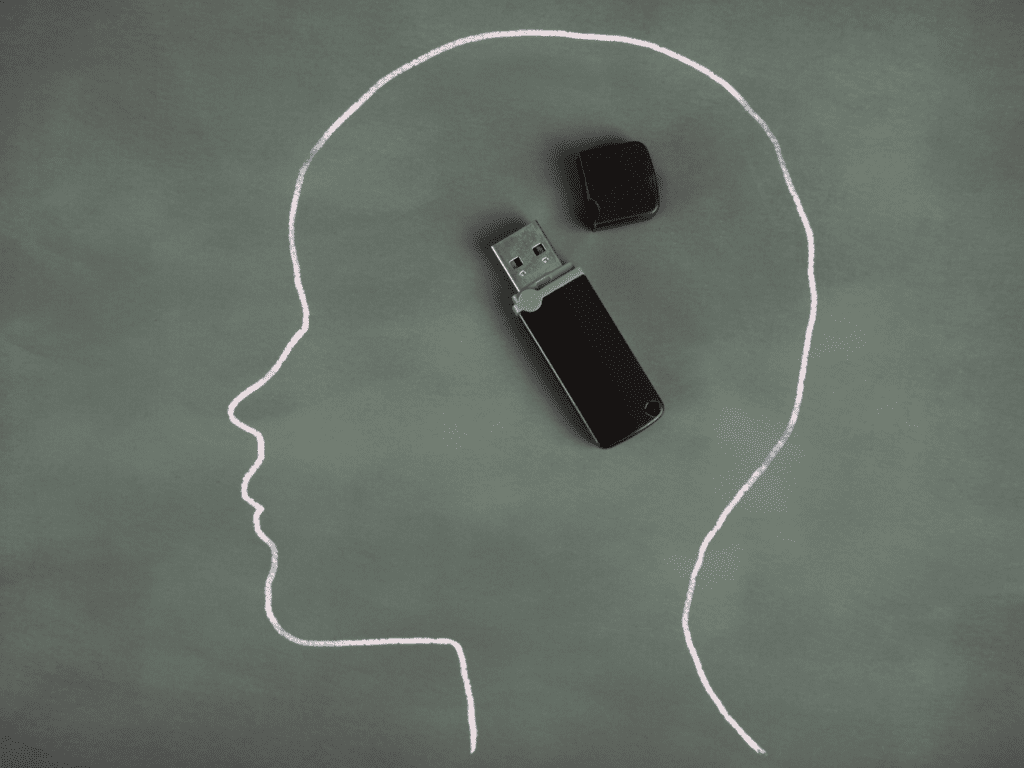There are schemas and scripts when it comes to memory. A schema is an organized, structured set of information about a concept, theme, or person. Schemas involve categorization of any type of information in the world (ex: hospital, patients, nurses, etc.). Scripts are schemas for an event in the world. For example a restaurant script involves everything you do when you go to eat at a restaurant (e.g., sitting down, ordering drinks, ordering food, paying the bill, etc.). Within Scripts there are inferences which involves Top Down Processing and allows people to fill in the gaps where there might be blank spots. This often happens when people black out from drinking alcohol. In addiction treatment, and in therapy in addiction treatment, sometimes addicts and alcoholics struggle to reconstruct their memories. Often times addicts and alcoholics will fill in gaps in their schemas with inferences. The problem is that this often results in false memories. In the extreme cases of inferences, people can create their own false memories of abuse that did not occur.
Elizabeth Loftus at the University of California Irvine is one of the top researchers in false memories and eyewitness testimony.
Recently a 60 Minutes story talked about the prevalence of false memory and how false memory eyewitness testimony has resulted in many eyewitnesses falsely incriminating innocent people. According to research there are several factors involved in the overconfidence of eyewitness testimony.
1. The more you know the more you think you know. The more an eyewitness is exposed to information from an event, the more they think they know what happened.
2. Post-identification reinforcement happens when other people tell you you are right. For instance a therapist who likes to validate everything their client’s say might reinforce a false memory.
3. Repeated questioning of the eyewitness reinforces their story. Simply put, when you are forced to relive a shaky memory over and over again, your confidence in the false memory gains strength. This can happen with drug addicts and alcoholics who deny the amount of drugs and alcohol they have used and do it over and over again, till they believe their own false memories about how bad it actually was for them. They may minimize their stories to the point where the truth of those memories fades into the background.
The new research in false memories is key to addiction treatment, because people’s memories when they get in to treatment are often shaky at best. Every clinician who works with a client must be vigilant at validating their client’s stories with secondary sources and be slow to reinforce denial and minimization.
NTS Staff
Author
-

President, CEO & Founder at Northbound Treatment Network
Paul Alexander is the CEO, President & Founder of Northbound Treatment Network in Newport Beach, California. He believes wholeheartedly in transformational leadership, organizational health and effective, fully integrated substance use disorder and mental health treatment. With over 27 years of experience in behavioral healthcare, Paul has extensive knowledge of “in vivo” treatment modalities, clinical development, operations, strategy, marketing and financial planning. He has been widely recognized for his development of collegiate-based residential treatment programs for students in recovery and authored a research study at The University of California confirming this modality’s effectiveness.
Paul’s comprehensive professional experience, willingness to innovate, and emphasis on organizational health are vital factors in Northbound’s continued success. Paul received his Certified Addiction Treatment Specialist training at Saddleback College in Mission Viejo, CA, and was awarded Outstanding Alumni Service Award in 2002. Paul holds a Bachelor of Arts degree in Criminology, Law and Society, Summa Cum Laude, from University of California, Irvine, and a Juris Doctorate degree from Loyola Law School of Los Angeles. Paul currently serves on The National Association of Addiction Treatment Providers (NAATP) board. In addition, he serves on The Family Recovery Foundation board and The CarePossible board in Orange County; both organizations are committed to raising funds for family recovery and treatment for former military personnel. Paul is in recovery himself and lives in Orange County with his wife Silvana and his two young sons, Noah and Dean.







